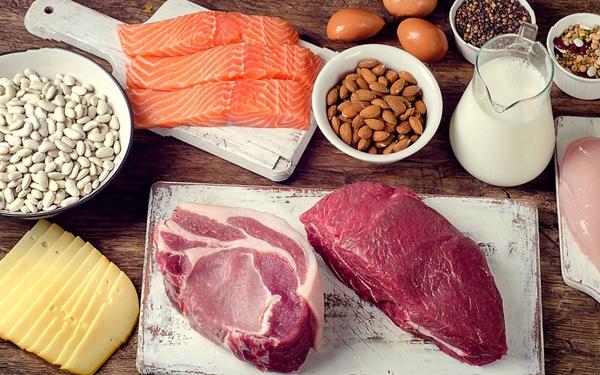

NUTRITION
Nutrition, especially calcium, plays an important role in preventing osteoporosis. In people who have healthy bones, adequate calcium intake on a daily basis is necessary to maintain bone health. For older adults, studies have shown that adequate calcium intake can slow bone loss and lower the risk of fracture. Protein is another important nutrient for building and repairing body tissues, including bones.
For those who are lactose intolerant or who have a milk allergy, options such as calcium-fortified soy, almond and rice beverages, calcium-fortified orange juice and canned salmon or sardines are great calcium-rich alternatives.
However, it is important to note that the calcium in soy beverage is absorbed at the rate of 75% of milk and to benefit from the calcium in canned salmon, the bones must be consumed.
Not all food sources that list calcium as a nutrient are absorbed by the body. The calcium in some foods, such as sesame seeds, rhubarb, swiss chard and spinach is not well absorbed because of their very high oxalate content, which binds the calcium. They have other nutrients, but are not a good source of calcium when calculating your daily intake.

Calcium
Bone is a living tissue, that is constantly renewing and repairing itself from everyday wear and tear. Calcium is essential to helping the remodeling process stay balanced. However, like many nutrients, calcium is absorbed less effectively as we age.

Vitamin D
Vitamin D, the “sunshine vitamin,” is produced when the sun’s rays interact with our skin. It helps build stronger bones by increasing the absorption of calcium. It also improves the function of muscles, which can improve your balance and decrease the likelihood of falling and suffering a fracture.

Protein
Diets that include recommended amounts of protein are associated with greater bone mass and fewer fractures when calcium intake is adequate. Adults with limited protein intake are at high risk for bone loss and fractures.

Magnesium
More than half of the magnesium found in our body is in our bones and getting enough magnesium in our diet is important for supporting good bone health.
Getting enough magnesium in our diet is important for supporting good bone health.

Vitamin K
Vitamin K activates a protein that helps build bone and bind minerals, such as calcium, to the bone structure.


Nutrient Calculator
Are you getting the daily required amount of each bone building nutrient? Use the Nutrient Calculator to calculate your approximate daily intake for each nutrient.